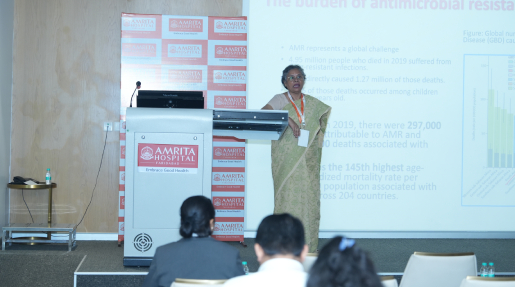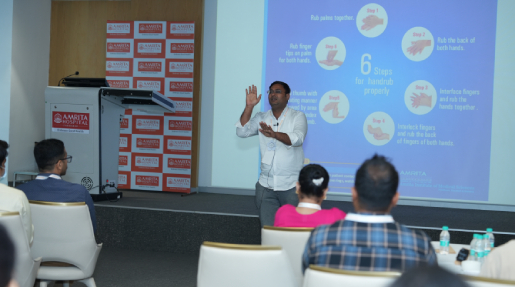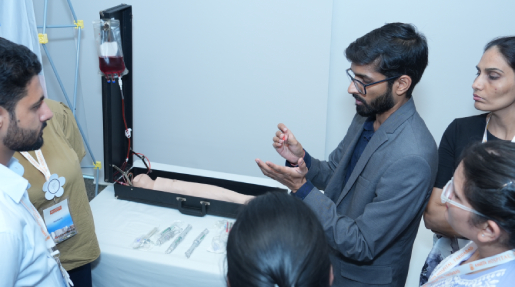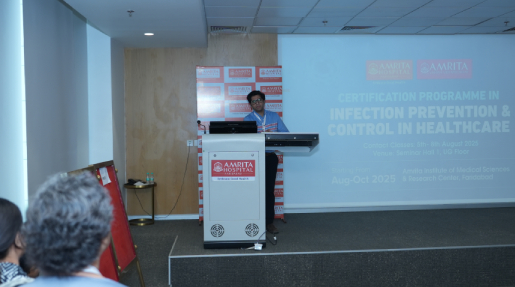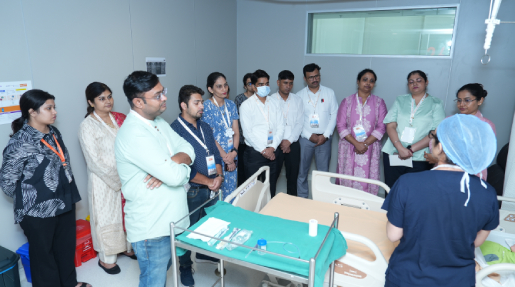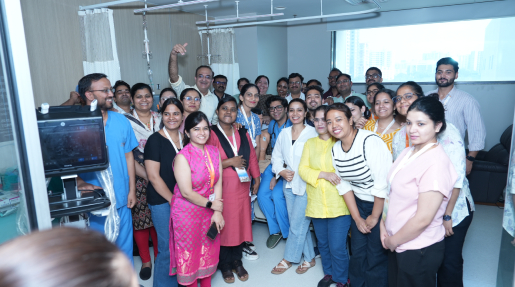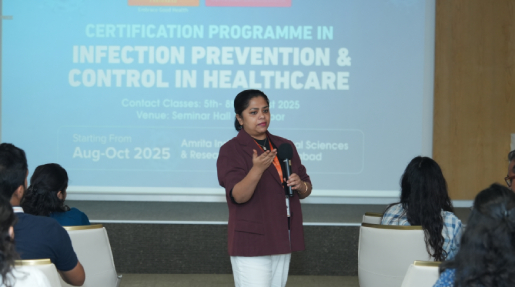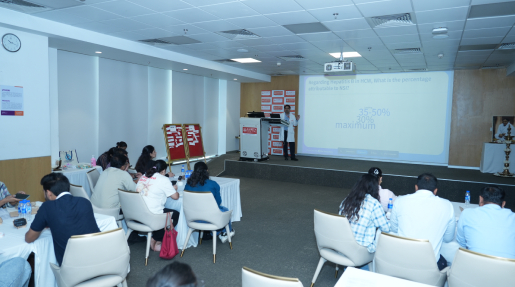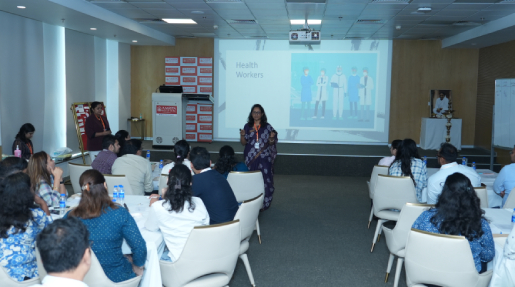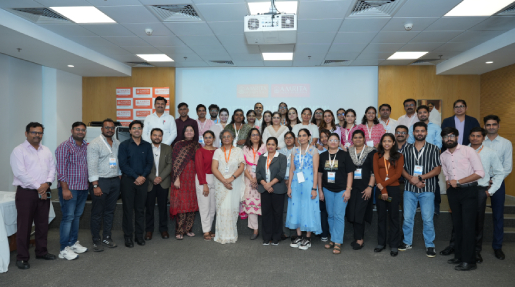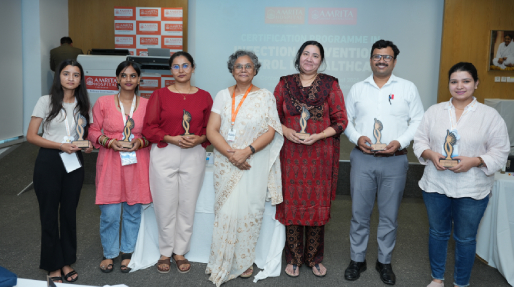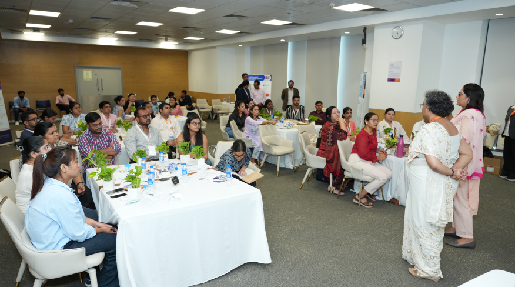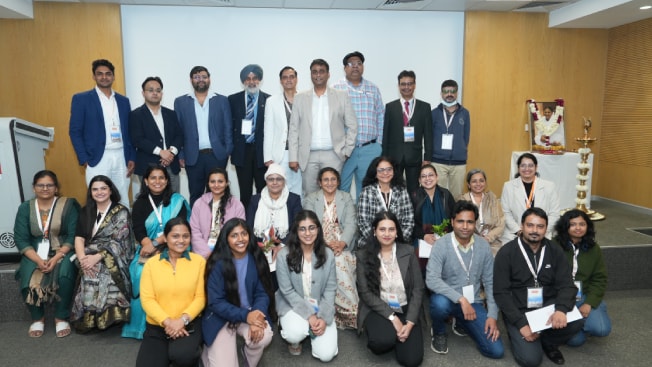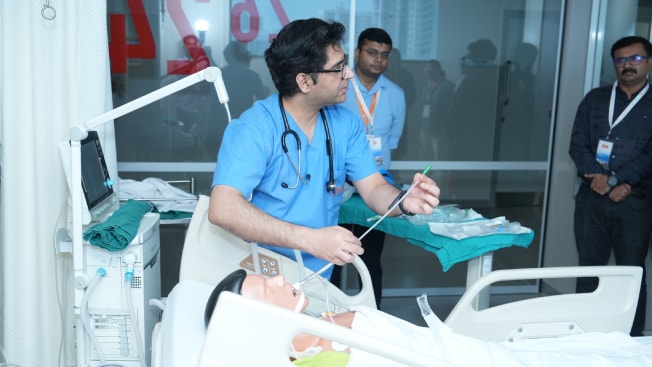
Amrita Hospital, Faridabad inaugurated its Infection Prevention & Control (IPC) Certification Program, a 12-week blended learning initiative designed to equip healthcare professionals with evidence-based skills to prevent and manage healthcare-associated infections (HAIs), enhancing patient safety and clinical outcomes.
The program commenced with a four-day intensive in-person training, forming the foundation of the 12-week curriculum, which combines hands-on contact classes, online modules, and five masterclasses by international experts, followed by evaluations including assignments, Quality Improvement Projects (QIPs), and MCQ-based assessments in Week 12. Participants also gained access to the hospital’s simulation lab for device-associated infection training and benefitted from a structured mentor-mentee program with experienced faculty.
Day 1
The program was inaugurated with addresses by hospital dignitaries, followed by an introduction to IPC fundamentals by Dr. Sharmila Sengupta, covering its history, burden, and core definitions. Interactive sessions on standard precautions, including hand hygiene, PPE, respiratory hygiene, and injection safety, were conducted using problem-based learning and live audits, supplemented with role-play and skill stations for practical exposure.
Day 2
Specialists including Dr. Aarti Gupta, Dr. Neha Rathor, Dr. Aayush Chawla, and Dr. Sameer Bhate guided participants through surveillance techniques and prevention bundles for CLABSI, CAUTI, VAP, and SSI. Simulation-based exercises led by critical care physicians Dr. Maninder Singh Dhaliwal, Dr. Vandana Saluja, and Dr. Aayush Chawla provided hands-on experience in real-time monitoring, complemented by problem-based learning on multidrug-resistant organism (MDRO) surveillance conducted by Dr. Purabi Barman.
Day 3
Sessions focused on needle stick injuries, blood/body fluid exposure, post-exposure prophylaxis, staff immunization, and transmission-based precautions, delivered by Ms. Meenakshi Chakraborty, Dr. Rohit Garg, Dr. Aparna Chakravarthy, and Dr. Ravneet Kaur. The afternoon included practical training on cleaning, disinfection, and sterilization, with hands-on rounds in the hospital’s CSSD to demonstrate workflow, monitoring, and infection control practices.
Day 4
Participants engaged in risk assessment exercises, hospital rounds in specialized areas such as dialysis, endoscopy, and bronchoscopy units, biomedical waste management, and microbiological sample collection under the guidance of Dr. Sharmila Sengupta, Dr. Malini Capoor, and Dr. Debasish Biswal.
The four-day hands-on segment successfully integrated lectures, simulations, and practical exercises, ensuring participants developed both the theoretical understanding and practical skills necessary for effective infection prevention and control. This in-person phase now leads into the subsequent 10 weeks of online modules and international masterclasses, culminating in final assessments and certification.
